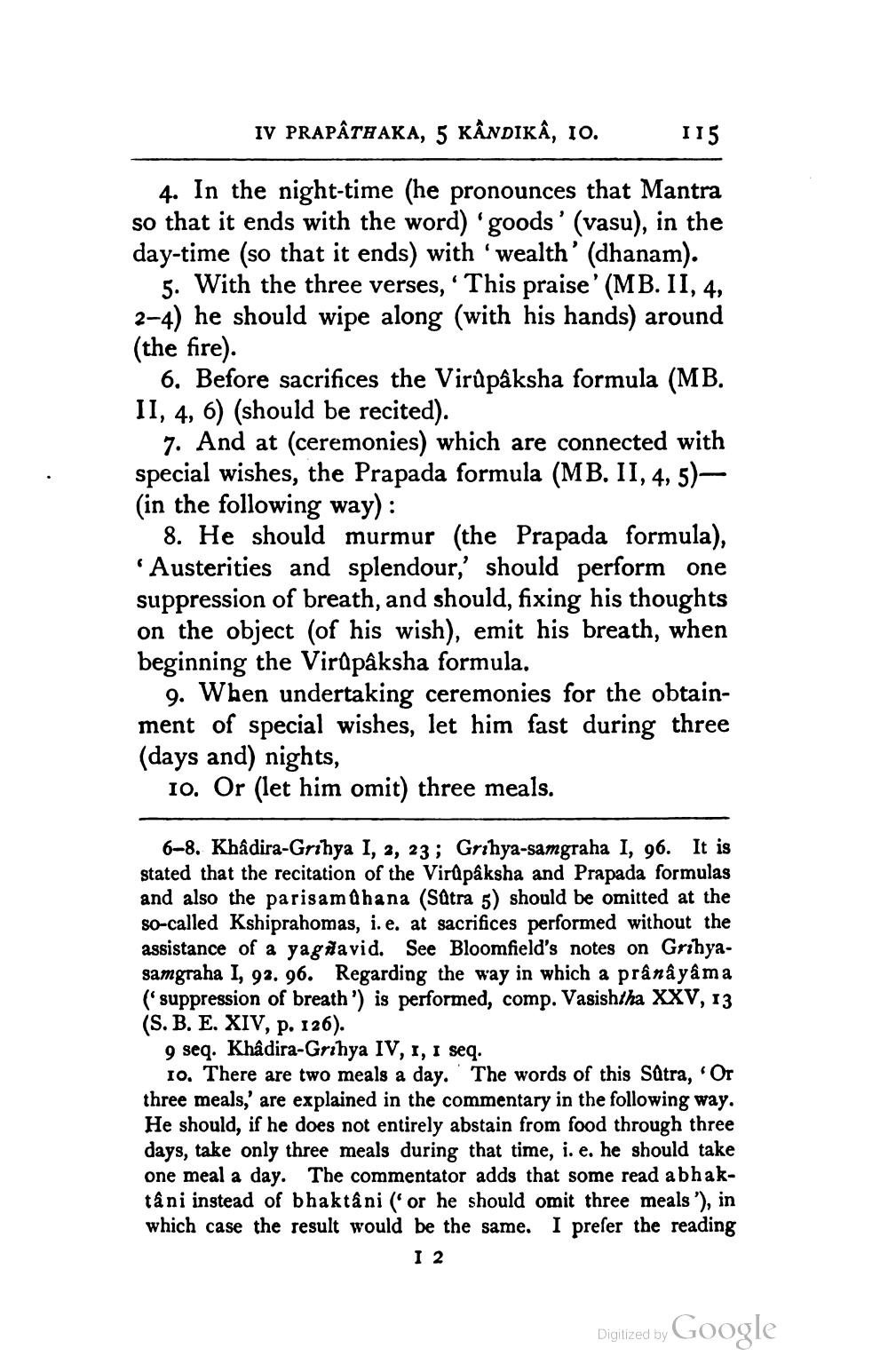________________
IV PRAPATHAKA, 5 KẦNDIKÂ, 10.
115
4. In the night-time (he pronounces that Mantra so that it ends with the word) 'goods' (vasu), in the day-time (so that it ends) with 'wealth' (dhanam).
5. With the three verses,' This praise' (MB. II, 4, 2-4) he should wipe along (with his hands) around (the fire).
6. Before sacrifices the Virûpâksha formula (MB. II, 4, 6) (should be recited).
7. And at (ceremonies) which are connected with special wishes, the Prapada formula (MB. II, 4, 5)— (in the following way):
8. He should murmur (the Prapada formula), 'Austerities and splendour,' should perform one suppression of breath, and should, fixing his thoughts on the object (of his wish), emit his breath, when beginning the Virupaksha formula.
9. When undertaking ceremonies for the obtainment of special wishes, let him fast during three (days and) nights,
10. Or (let him omit) three meals.
6-8. Khâdira-Grihya I, 2, 23; Grihya-samgraha I, 96. It is stated that the recitation of the Virupaksha and Prapada formulas and also the parisamûhana (Sutra 5) should be omitted at the so-called Kshiprahomas, i. e. at sacrifices performed without the assistance of a yag avid. See Bloomfield's notes on Grihyasamgraha I, 92. 96. Regarding the way in which a prânâyâma ('suppression of breath') is performed, comp. Vasishtha XXV, 13 (S. B. E. XIV, p. 126).
9 seq. Khâdira-Grihya IV, I, I seq.
10. There are two meals a day. The words of this Sutra, 'Or three meals,' are explained in the commentary in the following way. He should, if he does not entirely abstain from food through three days, take only three meals during that time, i. e. he should take one meal a day. The commentator adds that some read abhaktâni instead of bhaktâni (or he should omit three meals'), in which case the result would be the same. I prefer the reading
I 2
Digitized by
Google




